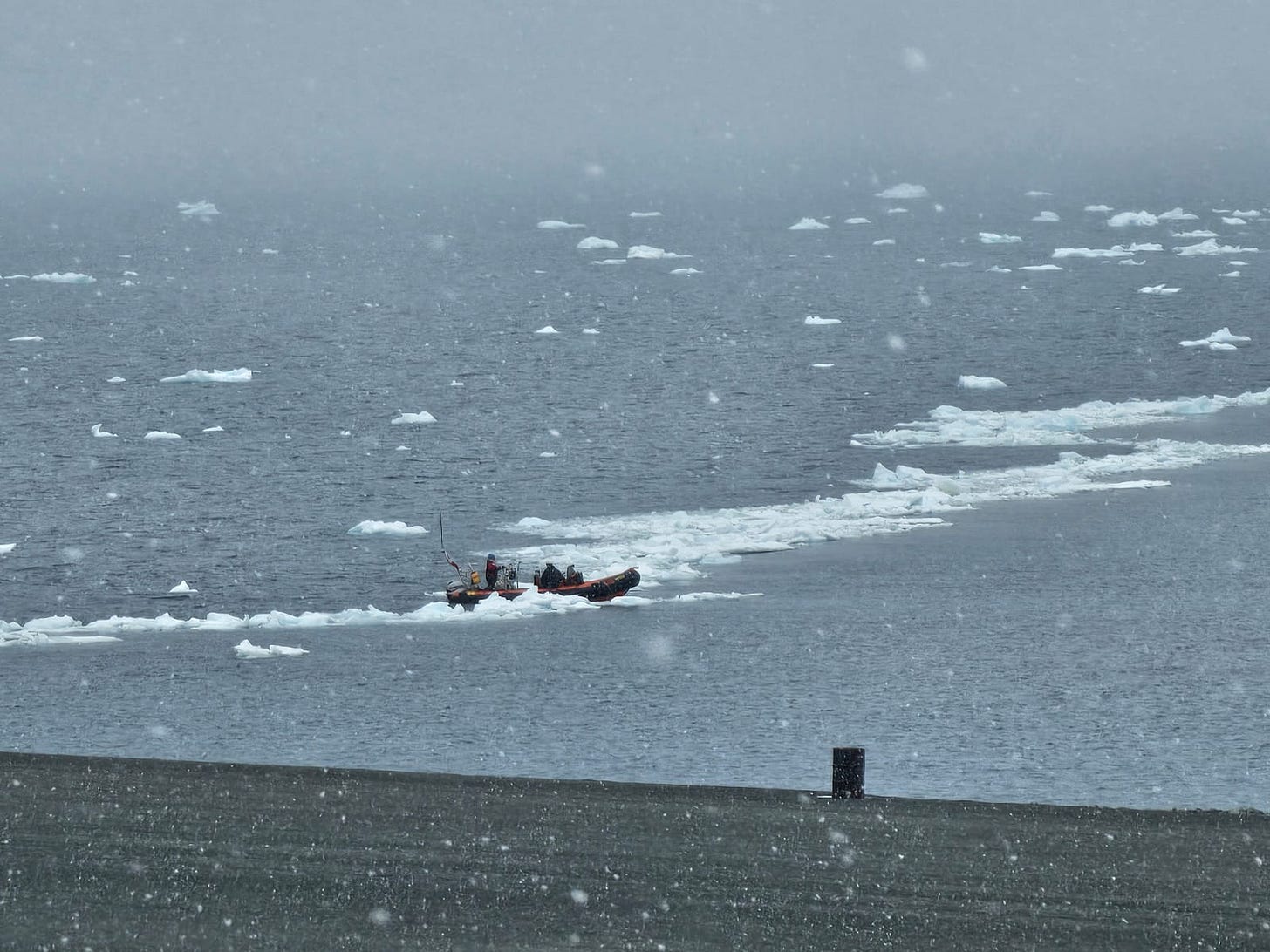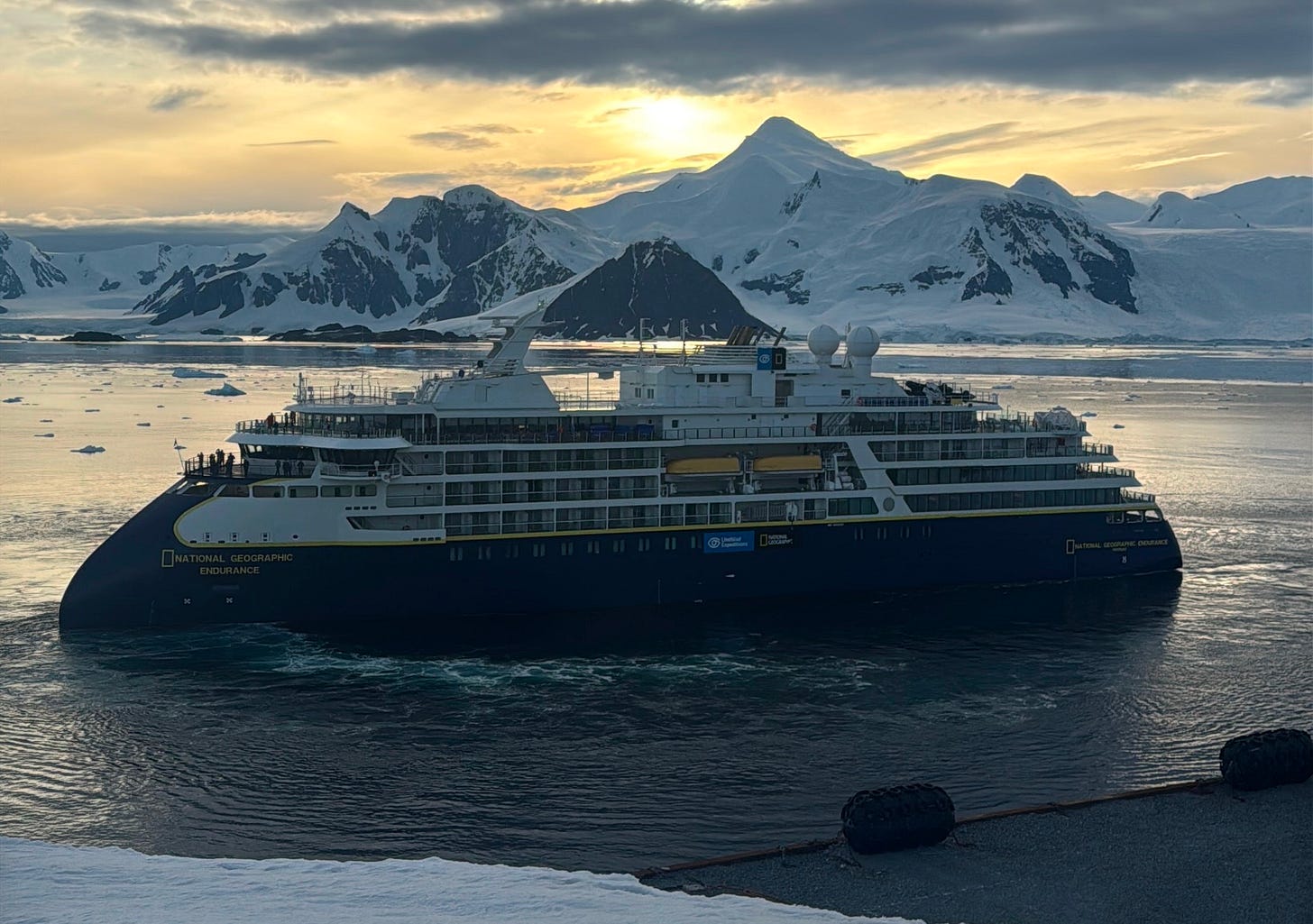There are so many brilliant things about living in Antarctica. This whole experience is something I will carry with me for the rest of my life. But, lots of things are harder here. Living and working in the driest, coldest climate on Earth makes life more difficult than it would otherwise be. Here are a few unexpected things that are harder in Antarctica…
Going outside
Unsurprisingly, going outside here is more of an undertaking than most places. The weather at the moment averages around -1ºC, occasionally rising to a balmy 2ºC. Although we don’t feel the worst of the cold due to the dry climate, as soon the wind fills in, or we move faster, the chill becomes more apparent. Therefore, before going outside, it’s sensible to take a coat and extra layers.

Some days, the weather will change from hot sun, to strong winds, to horizontal snow. This can happen nearly in an instant. Frustratingly, when it is really hot (which it often is when there are no clouds blocking the sun), the minimum clothing we wear — especially our boating drysuits — can be more frustrating than helpful. Few things make me grumpier than being stuck in a hot drysuit, unfortunately for those around me.
Over winter, outdoor life will get more challenging. Snow ‘dumps’ can happen dramatically overnight. Digging out fire exits is often the first item on the day’s agenda. In fact, many of the buildings here would be entirely buried if it weren’t for regular tending by the vehicles team. It’s such an issue that every fixed object is marked with a flag (or multiple) so that they aren’t inadvertently driven over.
Deliveries
Nearly everything here comes by ship. Primarily, this is via the Sir David Attenborough, currently the British Antarctic Survey’s only ship. This season, she will call at Rothera six times, which includes the earliest and latest ever calls at the station (November and June respectively). Every visit, we receive cargo, fuel, and often people.
Getting stuff onto the ship is a huge operation. In order to receive supplies for the boat shed, I have to complete an annual ‘indent’ (essentially a stock take), which will then be processed against required minimums, and my recommendations. This happens in March. It is highly likely that nothing ordered will show up until the following year, or close enough to it. Anything super-urgent can be sent down in staff’s hand luggage, but capacity for this is obviously limited, so is only used for absolute emergencies.
Post follows a similar time-scale. Anything posted from the UK is processed in the Falklands. Therefore, the ship has to call there in order to pick it up. The exact timings of this is entirely dependent on the science and logistics schedule. Between December and late-March, there have been no ship calls at the Falklands, so no post has been received or sent by Rothera for a long time1.

Storing food
The obvious answer to food storage would be make a large space next to the kitchens. Then the chefs could take what they need, and we’d only have to move it from containers a few times a year. The problem is, if the kitchen was to burn down, we would have no food left. Therefore, we store food in three different buildings, as a safety net should one or more become unuseable.
We have to move it around frequently. Each week, at the end of the working day on Friday, everyone is assigned a ‘scrub out’ task. Some people clean buildings and corridors, others walk around looking for litter outside. The largest scrub out task by far is ‘food move’, where long lines of people lift food from pallets into long-term storage. This week, when I did food move, we estimate ten tonnes of food got shifted in just over an hour. Impressive — but depressingly we’ll do it all again next week with another container.
Taking a shower
OK… taking a shower isn’t actually any harder here. We are living in the 21st Century. However, the water we use is a little more complicated. As a coastal station, our water is derived from the seawater that surrounds us. Drawn in from ‘Honeybucket’, also our boat’s launch site, seawater is made drinkable through ‘reverse osmosis’. This cleans to absolutely pure water. It then has to be re-filtered to restore necessary minerals, before it is used by us. I’m told that without the added minerals, it would cause some unpleasant gastrointestinal issues if consumed. I’m not trying that.

The reverse osmosis plants rely on power being generated. As this is also generated on site, it isn’t 100% reliable. If there’s a break in the power supply, or an issue with the reverse osmosis plants, we will be running on limited water whilst our tanks are re-supplied. After a problematic night in December, we endured several days of water restrictions, which meant we were encouraged not to shower, and couldn’t do any laundry.
Rubbish disposal
Rubbish disposal used to be so easy in the old days. ‘Sea-icing’ was standard practice — just piling waste onto an iceberg and letting it drift out to sea. Incredibly, it took until 1991 for countries to agree that that was a bad idea. Now, the environmental protocols of the Antarctic Treaty are strict. No waste can be left behind, everything must return to its country of origin, and nothing should be burned in the open.
To this end, Rothera has its own waste management facility. Similar to a UK recycling centre, we have receptacles for every kind of waste. Some food waste is incinerated in a safe environment, but the vast majority of it goes back to the UK after packing and treatment. This includes hazardous materials, such as pyrotechnics, explosives, and batteries. Nearly 90% of waste produced here gets recycled, which is extremely high in a global context.
Oils are another really tricky material to deal with. Oil spills are a significant issue if they occur, so BAS is proactive in risk-reduction and contingency planning. The entire winter team are trained in oil spill containment and removal, including from water. Even working on engines and boats, we have to be extremely careful not to spill oil — partly for the environmental principle, and partly because the boat shed sits directly above the drinking water supply.
Despite all of the aspects of life that are harder here, Antarctic contracts are totally worth it. I’ve been reflecting a lot recently about my motivation to do this 15-month long stint at 67º South. Like all good rumination, I have no conclusions to share — other than the fact that I don’t regret it. A big part is because of all the things that are actually easier here than at home, but that’s for another day.
If you want to send me a letter, there is guidance here.




Another great blog Ollie - ft.com/artic has an excellent article this week entitled At sea with the US Coast Guard - your next assignment?